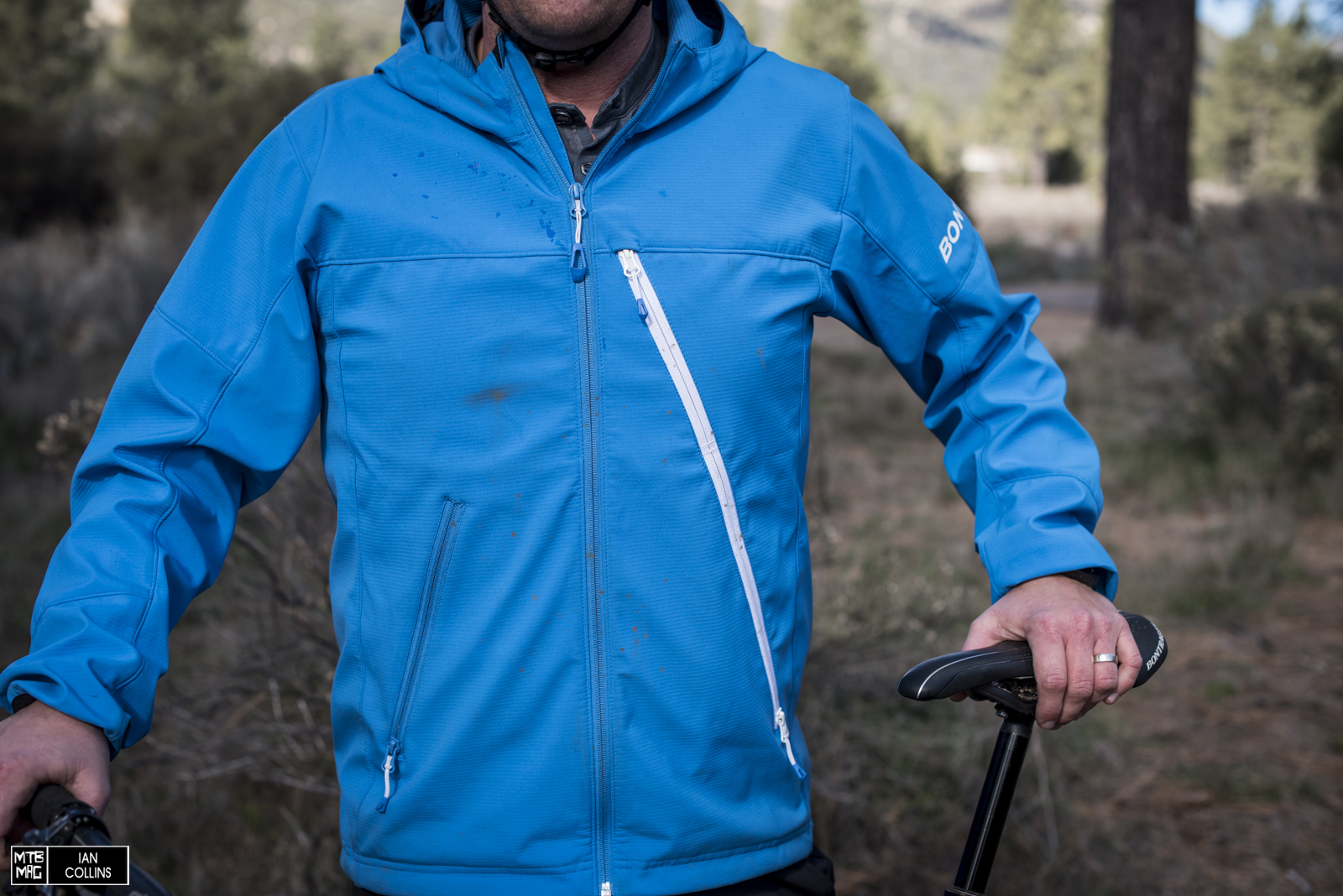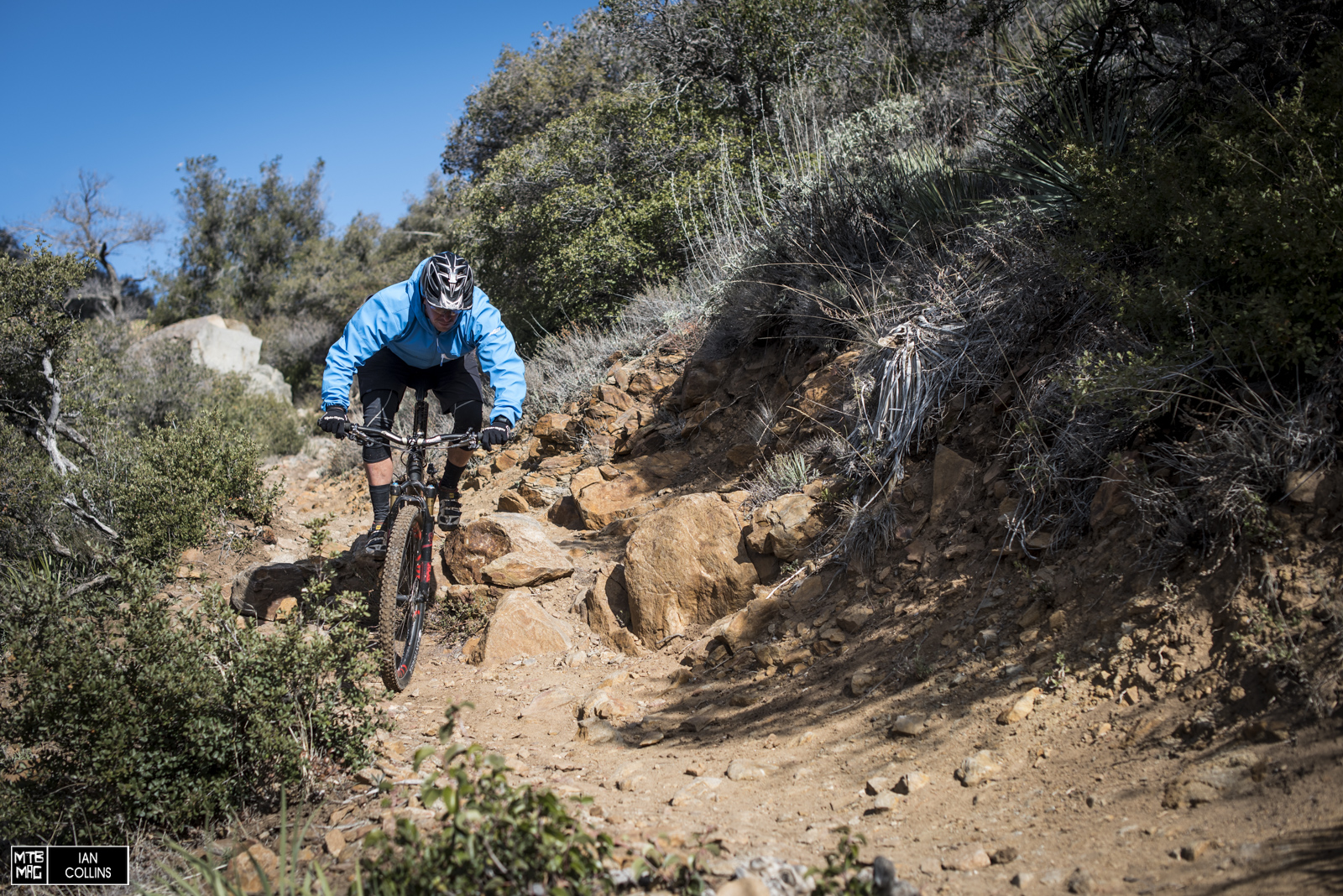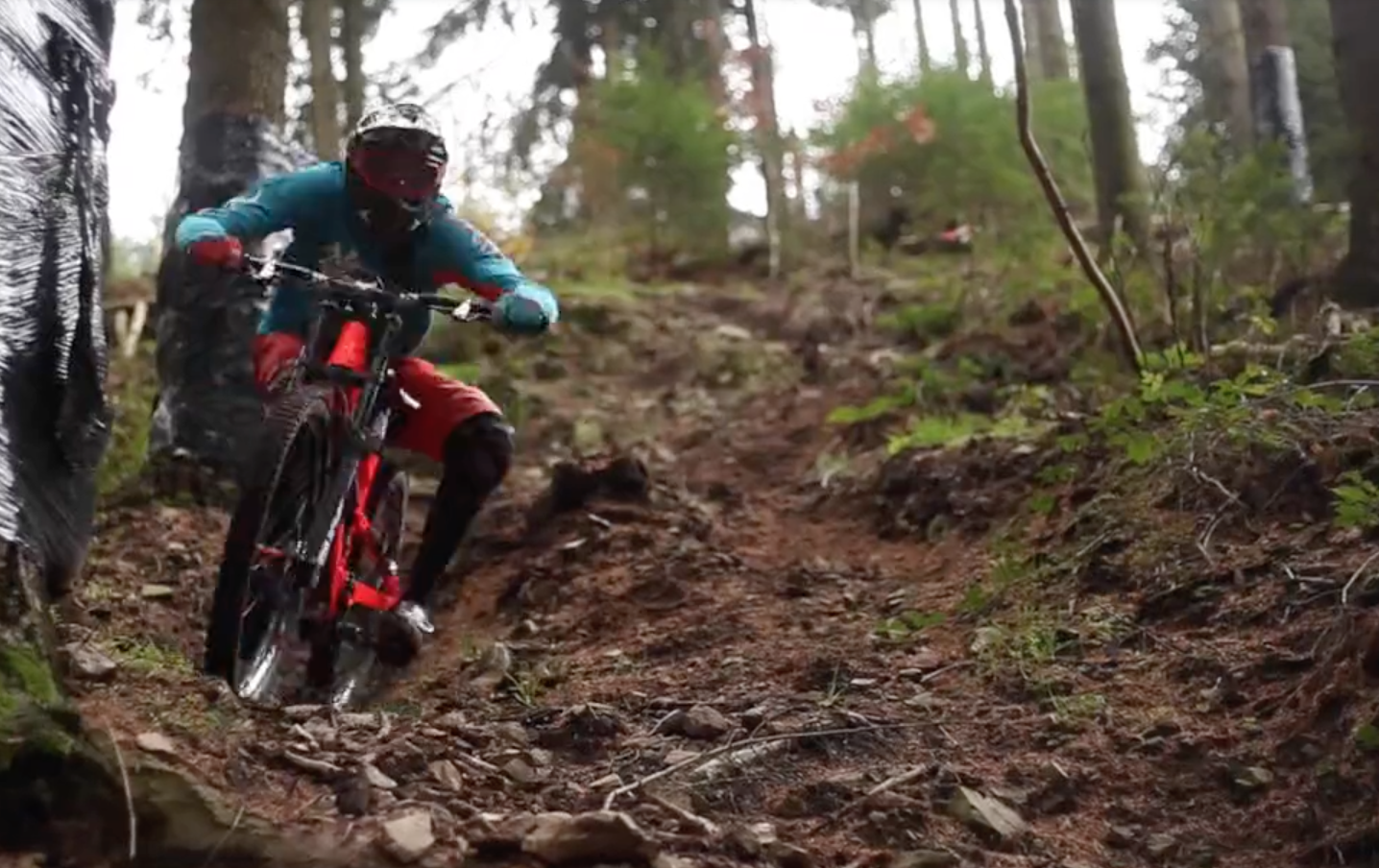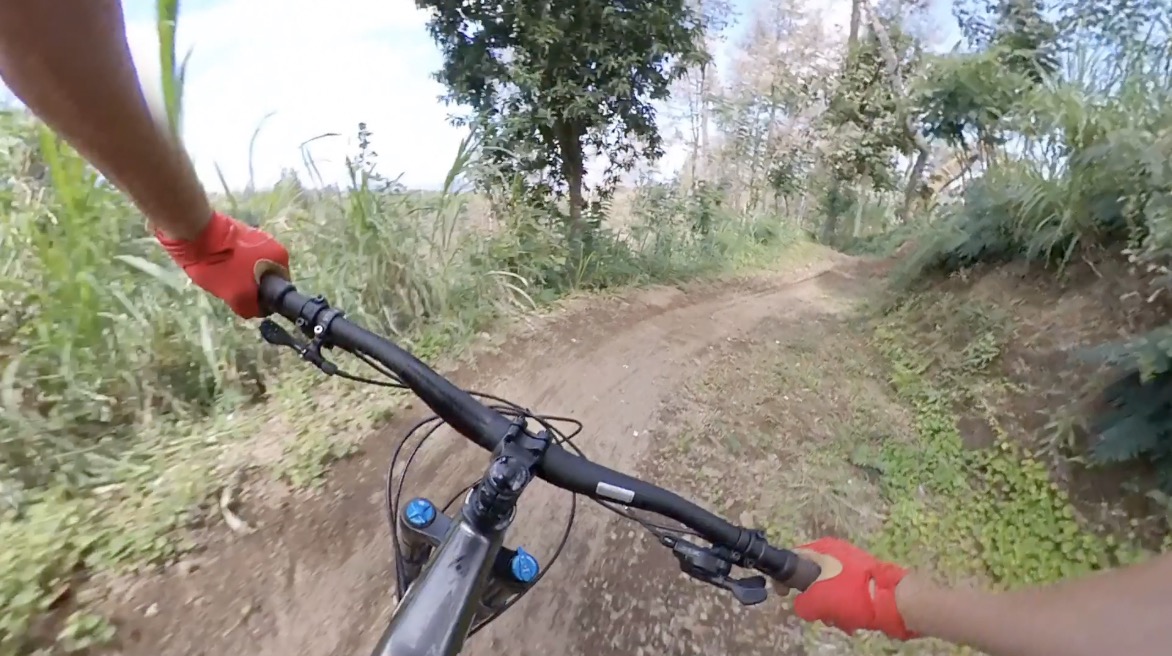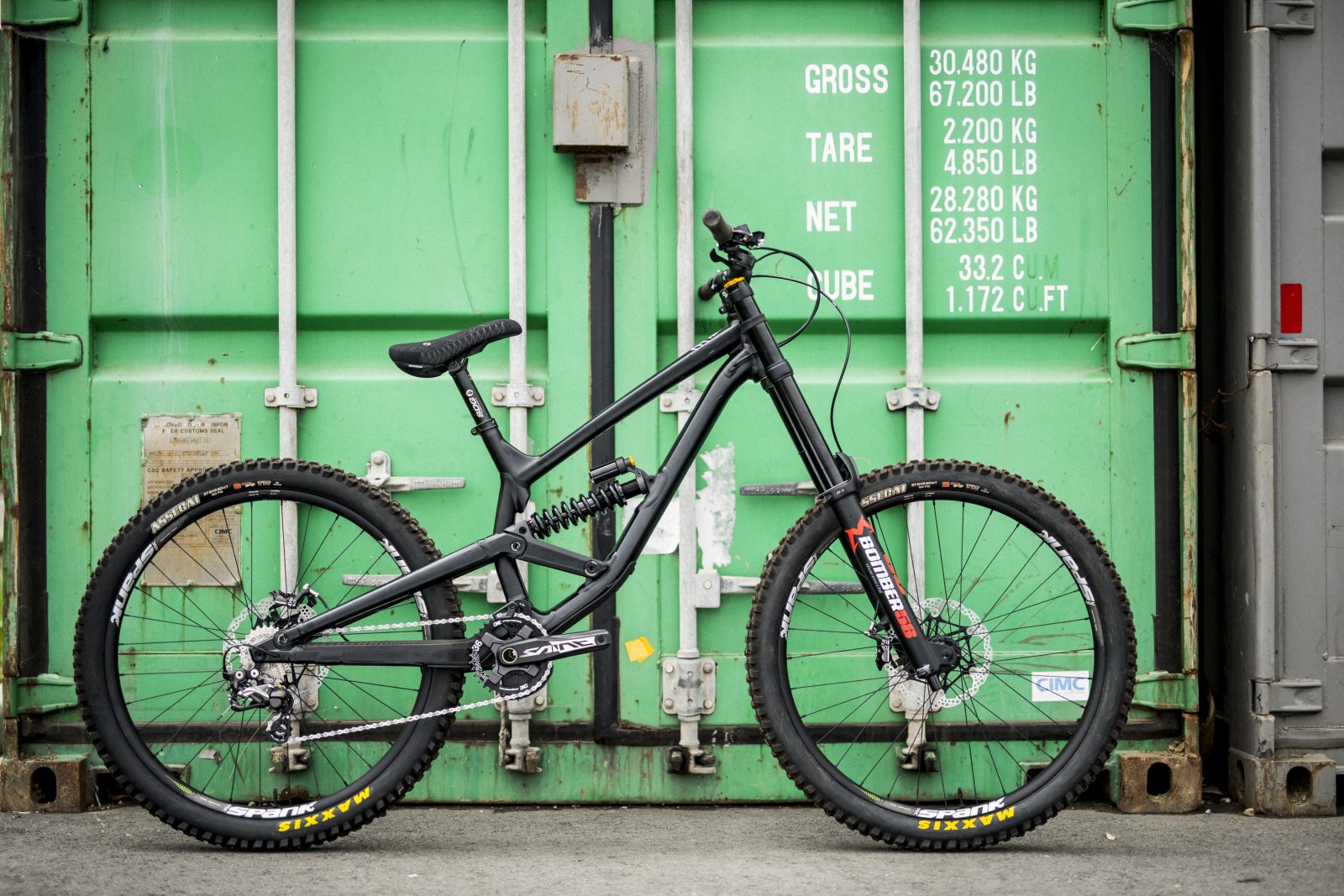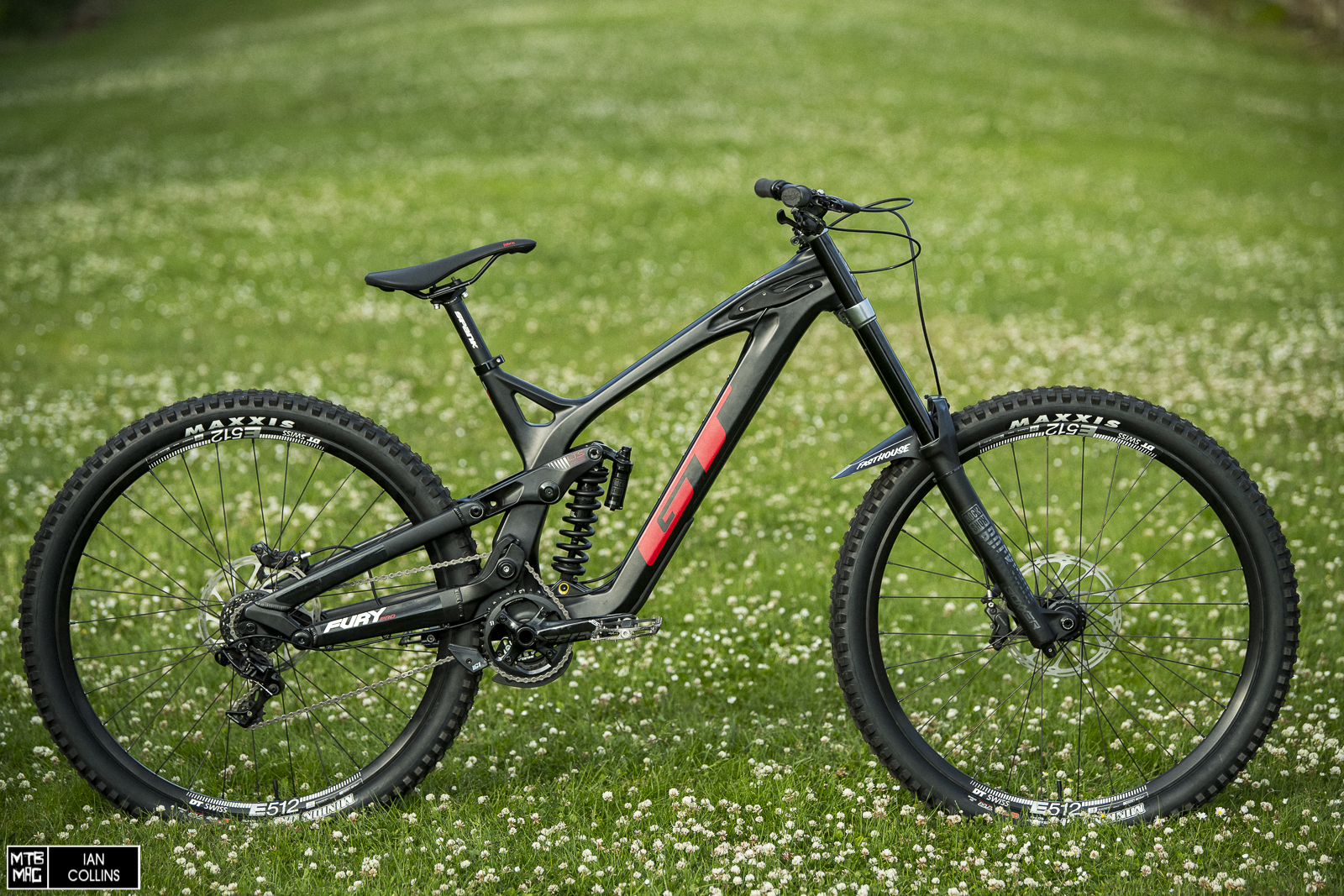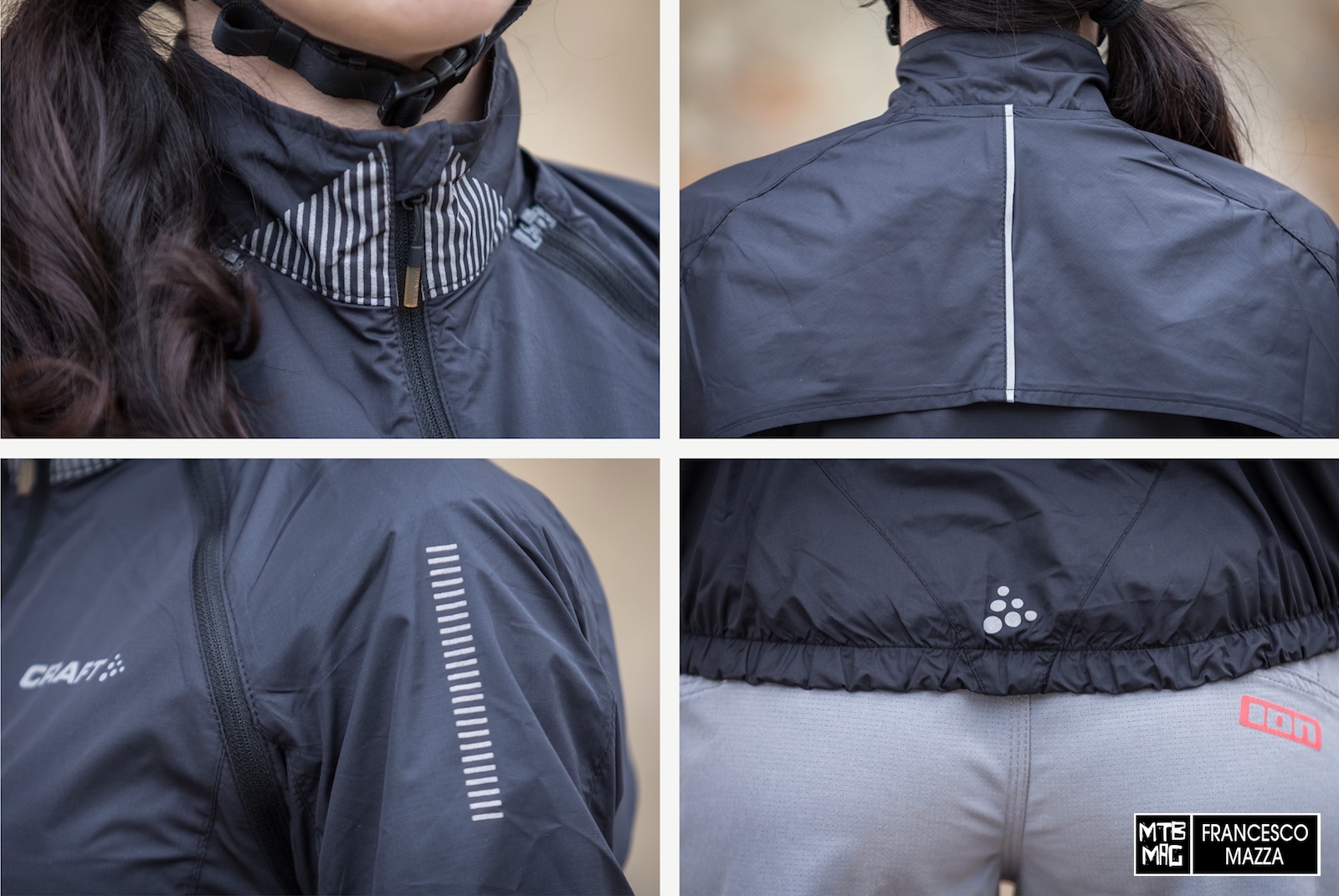[ad3]
Continuing on with winter weather gear we touch on the new Bontrager Lithos “Softshell”. Compared to a standard shell, it offers a bit more flexibility, and is lined with a very thin, light material on the inside which feels soft and pleasant to the touch, yet offers better moisture wicking properties than a standard shell. With 5,000mm waterproofing, it doesn’t offer quite the same resistance to water penetration that its Lithos Stormshell counterpart does at 10,000mm, but it is still highly resistant and is aimed at riding in less severe conditions. Over the last few months we’ve been donning this jacket on brisk mornings and evenings that were often either accompanied by light to moderate rain or post rain trail conditions with water lingering from branches and newly formed puddles.
Details
• Profila Softshell fabric combines warmth and protection
• Two zippered hand pockets, one zippered chest pocket
• Three-way adjust hood is helmet compatible and easily adjusts for off-bike use
• 1.75″ (5cm) drop tail for cycling specific fit
• Semi-fitted cut follows the curves of your body with room for movement
• 5,000mm waterproof, 5,000g/m²/24hr breathability
• Retail : $174.99 U.S.
• Six sizes : XS – XXL
• Colors : Black & Stratosphere(Light Blue)
Fit
The 5cm tail drop is a nice, logical touch; like any cycling specific jacket, it’s one of the many advantages compared to buying a non-cycling specific shell. As for fit, it was nice and trim which we welcome, especially when wearing a backpack. No one likes bulk bunching up and then pulling up and out from under a waist belt.
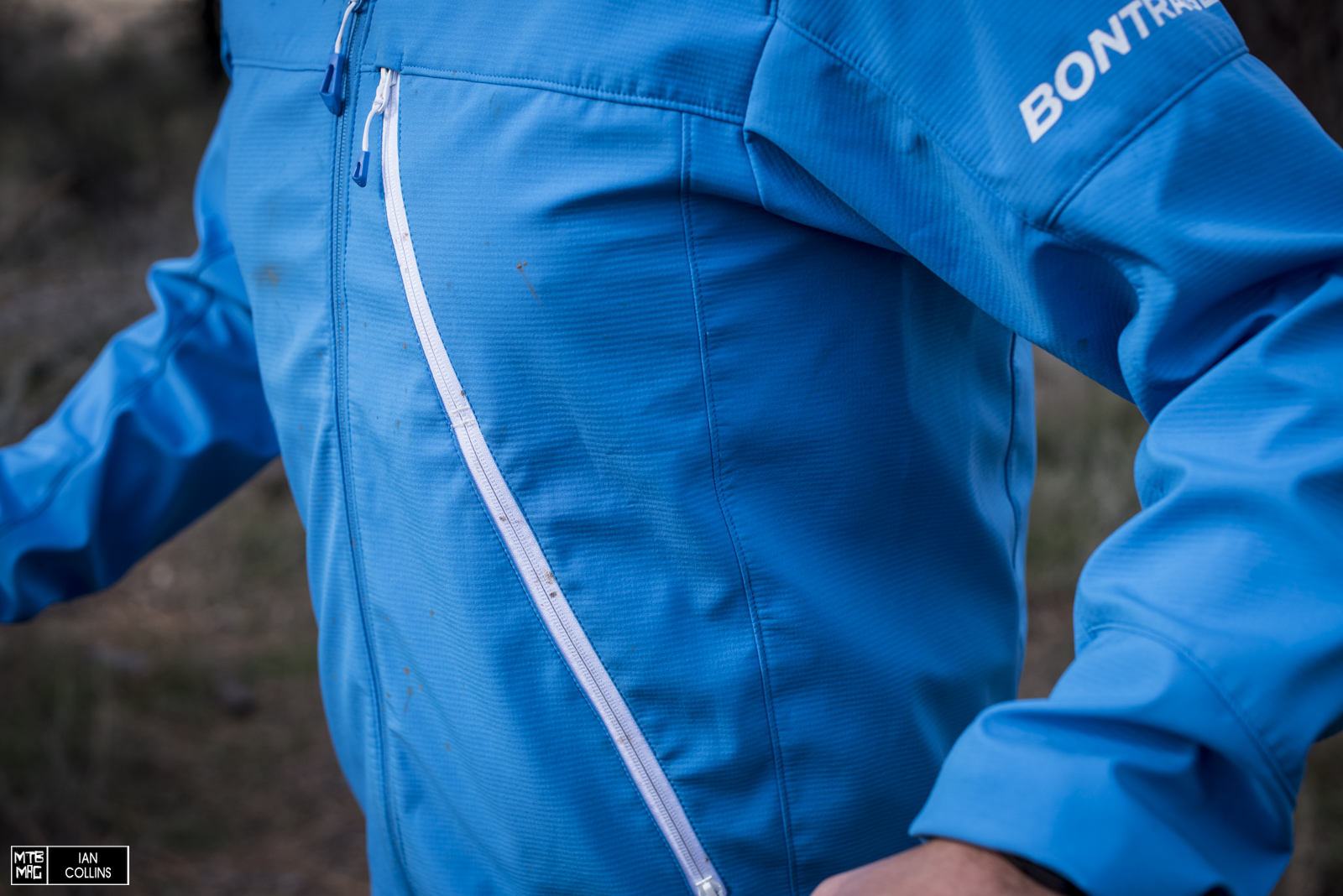
We did notice the sleeves seemed longer than most when wearing the jacket casually. It wasn’t until we got on the bike and rode in the attack position that we had an “ah-ha”moment: if the sleeves would have been cut normally they would be shifting up the arm while riding and leave a substantial gap between the gloves and the cuffs. Although the rest of the jacket fit spot on, we still found our sleeves to be slightly long. That said, it’s a size large which could likely have to fit some very lanky riders so better a bit long than short. While we would have preferred the adjustability of a velcro closure to the elastic cuff featured, the sleeves were long enough that they stayed put.
Impressions
The first thing we took note of was the interesting “Profila” fabric. As mentioned, it’s soft and flexible, which any cyclist should welcome as range of motion is key.

The 3 way adjustable hood worked well with our Troy Lee Designs A1 lid, which is a staple these days. We felt there was enough room and adjustability to play nice with most any other lid out there save a full face. Again, another advantage for cycling specific. If you’ve ever ridden in rain or wind, the difference is night and day when you put your hood up over your helmet. It’s especially nice when it doesn’t limit your range of motion, and the Lithos did a fine job at that. We loved the soft, generously cut chin area.

On the left side chest panel there is a phone/music player pocket with a port for a headphone jack, a nice touch. We loved that this kept the phone out of our short pockets, yet still out of the way of hydration pack shoulder AND waist straps. With that in mind, it may require a bit of adjustment for a chest strap or may not work at all depending on where you may prefer it.

The tabs that you pull to the left and right below the chin were a bit tough to find with gloves on, but that’s partly because they’re tucked away and discrete, so we’ll take a little good with the bad. There are two minimalist reflective panels running vertically up the hips. The element of safety is present but doesn’t go overboard. 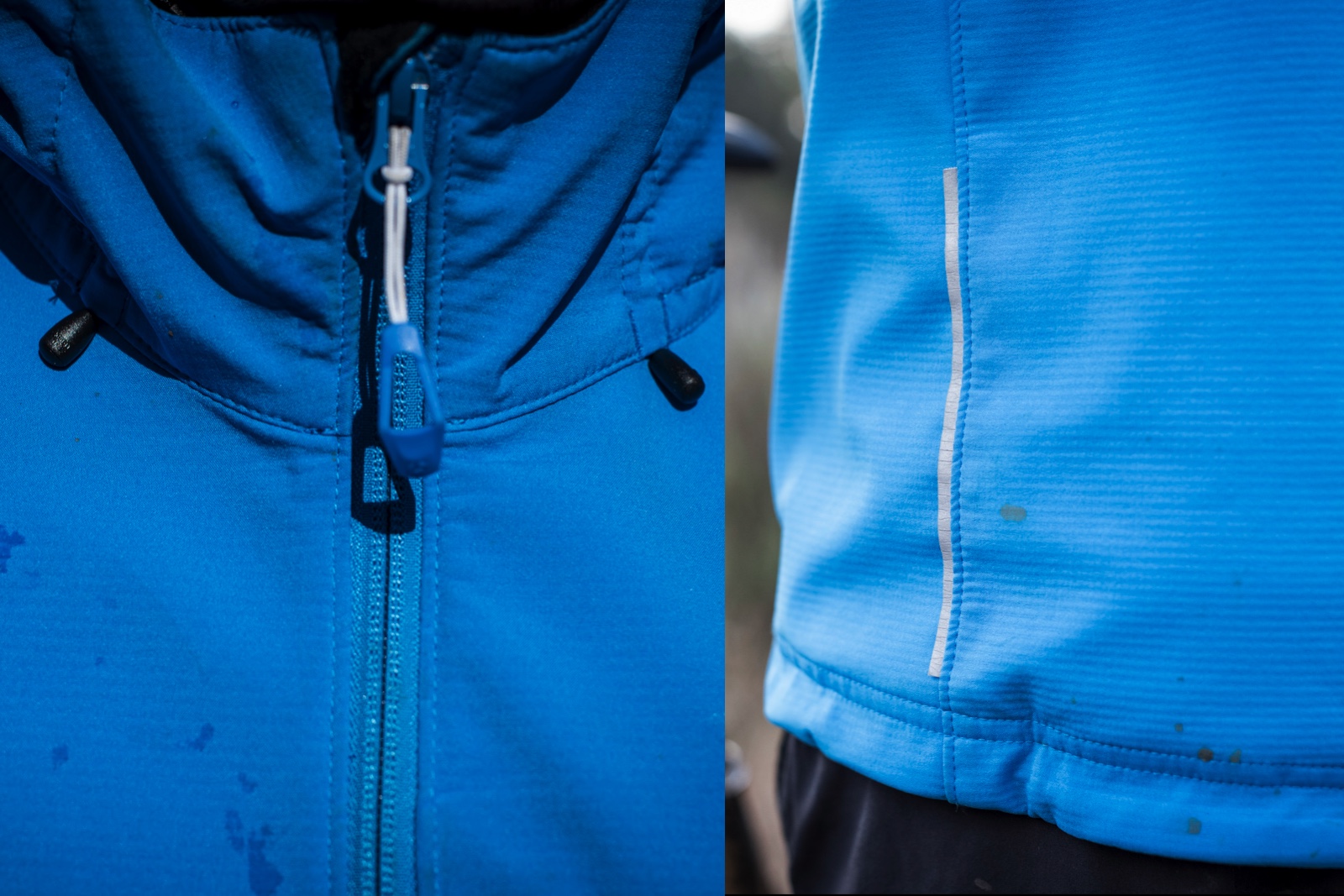
On the Trail
Once winter set in around Southern California, we began reaching for this jacket on more of a regular basis than we had initially anticipated. Our initial test was in 32 degree (F) weather plus a pesky windchill on an early morning. The trails we rode had multiple distinct microclimates so we opted for our go to short sleeve jersey paired with arm warmers and the Lithos. Halfway through most of our rides we tended to shed the arm warmers and appreciated that the inside of the jacket didn’t feel sticky or plasticky (we made that word up) on our bare forearms like some shells do. Often for the first 15 minutes of our average ride we’d opt to have the hood up then flick it off later. The hood stayed out of the way and settled in below our helmet and above our hydration pack nicely without making a scene. We felt that the wind resistance was on par with Gore-Tex brand windstopper material which, if you aren’t familiar, is hard to beat. As for breathability, we initially thought we’d resent the fact that armpit zippers weren’t present, but the large horizontal vented zipper combined with the vented pockets did a surprisingly good job of letting us breathe. The lack of armpit zips allowed for an improved range of motion and was more friendly with hydration pack shoulder straps.
We didn’t take the Lithos Softshell out on rides during storms of biblical proportions, but we did get out in light to moderate rain and wet conditions often. Afterall, it isn’t good for most trails (particularly in So-Cal) to ride them in a downpour, and this jacket isn’t intended or marketed for those severe conditions. If riding in the aforementioned weather is your cup of tea, and most of this shell’s features appeal to you, then perhaps you should take a look at the Lithos Stormshell. When riding muddier trails we had concerns that the soft outer fabric might allow dirt to penetrate and stain the brightly colored jacket but those worries were put to rest after one wash where we followed the washing instructions on the inside tag to find the jacket coming out looking like new. With that in mind, it’s always wise to avoid over washing a shell as it will mitigate the effectiveness of the waterproofing.
Overall
In the last few months the Lithos Softshell quickly became our “go-to” any time a long sleeve jersey and a base layer didn’t cut it. Don’t be fooled by these riding pictures that appear to show balmy weather conditions; they were taken in mid 30’s (F) weather with a sharp wind and frozen dirt. In any case, we found that this jacket was perfect for any type of riding ranging from the conditions mentioned above to moderate precipitation. The breathability was absolute top notch, wind proofing was spot on and it did a fine job of keeping water out. The technical details and features are well thought out; all of which served as reminders that being comfortable on the bike was the number one priority to the designers at Bontrager. In terms of value, we feel that $174.99 is a fair price for a staple winter item such as this which should last a few seasons in your riding wardrobe. If you live in the Pacific Northwest or the UK, you may want to consider something a bit more aggressive but all in all, this is a great shell for moderately cold and wet winters like those which we see in California.
Bontrager
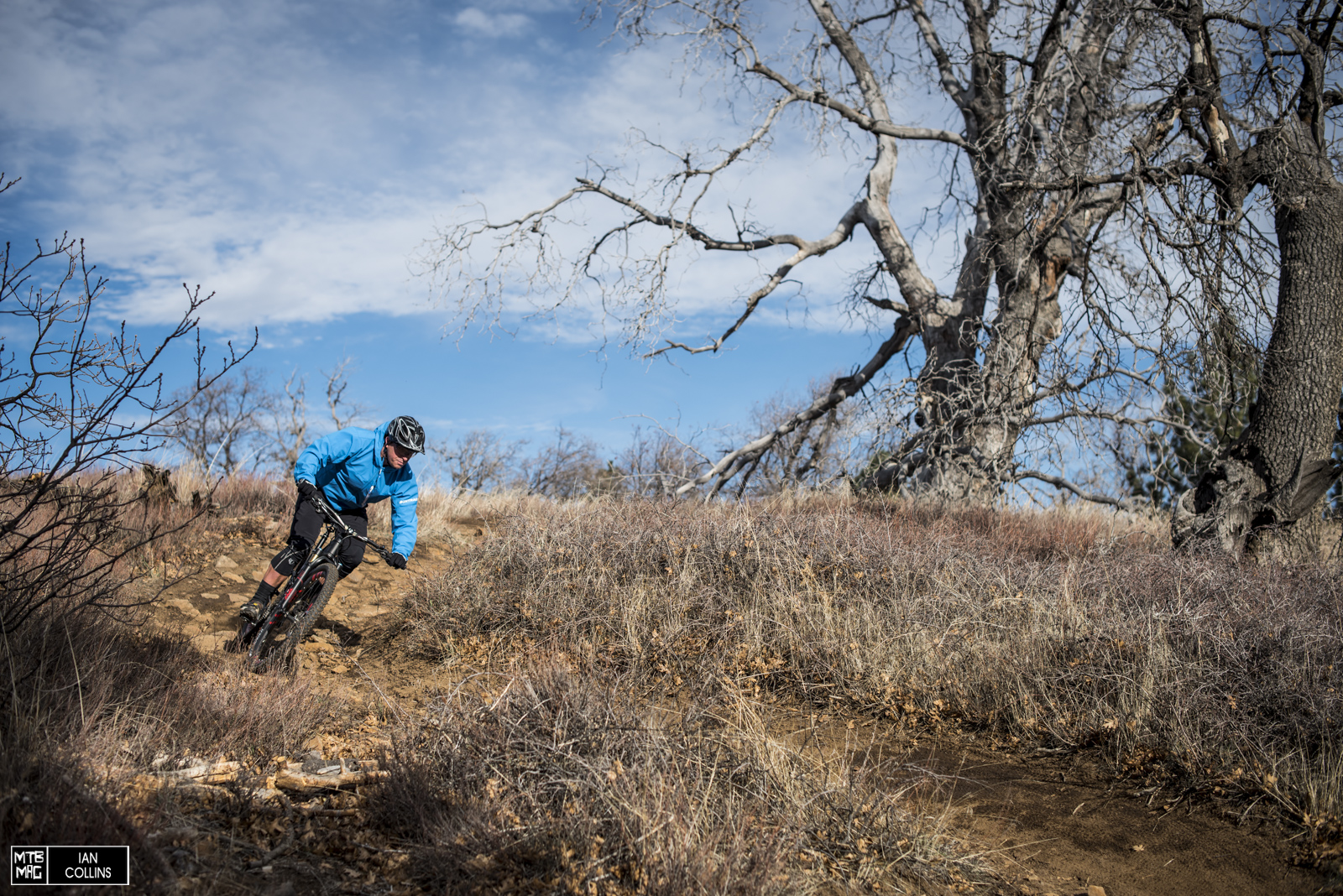
[ad45]

